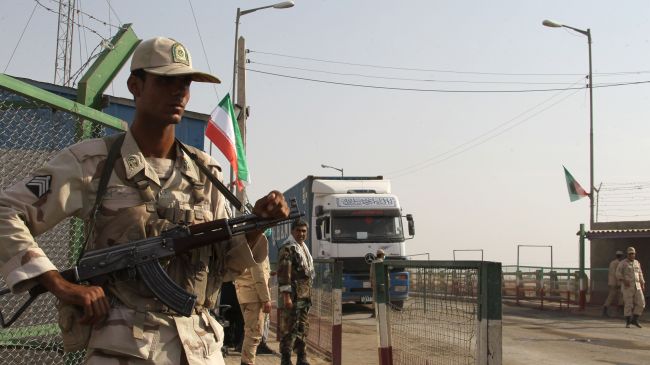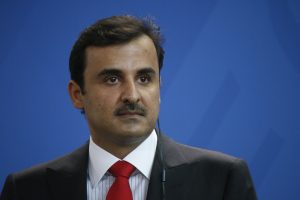by Shireen T. Hunter
In the past two weeks, relations between Tehran and Islamabad appear to have deteriorated again over border clashes and terrorist attacks in Iran’s Sistan and Baluchistan province located close to the Pakistani-Iranian border. Unlike past tensions, which were caused by the activities of the Sunni extremist Baluchi group, Jundallah, and later by some of its offshoots including Jaish ul-Adl, the current trouble, according to Pakistani officials, resulted from the killing of a Pakistani Frontier Corps member last week by Iranian border forces.
Beyond this particular incident, which has raised the temperature between the two countries, the latest efforts by Sunni militants to enter Iran has caused greater concerns than in past because, according to statements by Iranian authorities, some Pakistani sympathizers of the Islamic State (ISIS or IS) have been trying to join it by travelling through Iranian territories on their way to Iraq or Syria. Considering the fact that IS has declared its desire to attack Iran, the recent events have heightened Iranian fears.
Until recently, Iran contented itself by complaining to Pakistani authorities about the lax border security while demanding that the Pakistanis do a better job of preventing terrorist infiltration from their territory into Iran. However, after the abduction of several Iranian borders guards and the killing of one of them, some Iranian authorities warned that they may have to enter Pakistani territory in pursuit of the offenders—they have yet to do so.
This show of restraint by Iran occurred despite the fact that Jundallah, and its then-leader, Abdul Malik Rigi, who was responsible for killing hundreds of civilians and revolutionary guards through bomb attacks and abductions, had links with extremist Pakistani groups, and possibly even with Pakistani intelligence services.
For its part, Pakistan had, in the past, tried to placate Iran by saying that it did not have enough control in the border region and by promising to do a better job in the future—but without taking any real steps to prevent the infiltration of terrorists.
In response to the latest incident, however, Pakistan has reacted more strongly by summoning the Iranian ambassador to Islamabad and by publicly protesting the killing of a member of its Frontier Corps. Moreover, Pakistan has also demanded that Iran offer evidence that terrorists have infiltrated Iran form Pakistan or that they enjoy safe haven in Pakistan. Pakistani authorities have also said that Iran should not blame Pakistan for its problems in the Sistan-Baluchistan province.
Nothing New
Attacks on Iranian interests and personnel deep inside Pakistan and terrorist-operations orchestrated from within Pakistan against Iran have been occuring since at least the early 1990s, if not earlier. These attacks and the resulting tensions in turn reflect the fundamental political and cultural changes that Iran and Pakistan have undergone as well as the changing patterns in their respective international and regional alliances since the time that they were close allies in the 1950s-60s, and the early 1970s.
The earliest signs of strains in Iranian-Pakistani relations emerged during the summit meeting of the Organization of the Islamic Conference in 1976. At that time, then-Prime Minister Zulfikar Ali Bhutto—who after the separation of East Pakistan had turned to Islam as a way of consolidating the remaining state, and was also courting Arab petro-dollars—invited Muammar Gaddafi to the Summit. The shah, who had steadfastly stood by Pakistan throughout its troubles, indicated that he would not attend the summit if Gaddafi attended. Pakistan’s answer essentially was: too bad.
The trend beginning under Bhutto gathered steam under General Zia ul-Haq, who assumed power in 1978 and set upon the policies of greater Islamization of Pakistan and forging closer ties with Saudi Arabia and other Gulf States, especially the United Arab Emirates (UAE)—ties that were further consolidated during the Soviet-Afghan war.
One result of these policies, and the Soviet-Afghan war, was the growing influence of Wahhabi/Salafi Islam in Pakistan, which is anti-Shia and thus detrimental to Iran. This was also accompanied by a degree of Arabization or even Saudization of Pakistan’s culture and its turning away from its traditional Mogul culture with its heavy imprint of Persian culture and language. Today, for example, the Persian poetry of Allama Muhammad Iqbal is not valued—only his work in Urdu is promoted. There have also been efforts to eliminate Persian words from day-to-day usage. Thus, for instance, many in Pakistan are now saying farewell with Allah Hafiz, instead of the traditional Khoda Hafez because Khoda is the Persian word for God. This may sound trivial, but it is symbolic of Pakistan’s cultural shift.
The Iranian revolution also strained relations with Pakistan. First, the birth of the Islamic Republic in Iran emboldened Pakistani Shias who were unhappy with Zia’s changes in the country’s legal system and the increasing discrimination against them to become more active and demand more rights. Unsurprisingly, the Pakistani elite and the Sunni majority did not view this development favorably.
Iran’s revolution also had a detrimental impact on Iranian-Pakistani cooperative relations, namely their joint friendly relations with the United States. Similarly, by causing tensions in Iran’s relations with Saudi Arabia and other Gulf States with whom Pakistan shares close ties, the revolution further strained their bilateral ties. In fact, Saudi–Iranian animosity is a major cause of tension in Iranian-Pakistani relations especially under Prime Minister Nawaz Sharif, who is even closer to the Saudi monarchy than former PM Asif Ali Zardari. Indeed, Saudi Arabia supports Iran’s Sunni dissidents and is against increased economic cooperation between Iran and Pakistan. Saudi Arabia also reportedly gave Pakistan one billion dollars so that it would not implement the agreement for the import of Iranian gas, even though the country is desperate for energy.
Meanwhile, after the Soviet Union’s collapse and the onset of the Afghan Civil War, Iranian-Pakistani interests further diverged. For instance, in Afghanistan, Iran and Pakistan backed different groups and competed over pipeline routes. Even today, Pakistan wants to limit, if not block, Iran’s influence in Afghanistan. This is at least part of the reason why Pakistan and Saudi Arabia would not have allowed a member of the Northern Alliance to become Afghanistan’s president: it would have resulted in better relations between Afghanistan and Iran. In this respect the two Sunni countries also have Turkey’s support, as reflected by President Recep Tayyip Erdogan’s recent visit to Kabul.
The US policy of trying to destabilize Iran by encouraging internal dissent, especially under the George W. Bush administration, also emboldened Pakistan to ignore incursions from its territory into Iran and dismiss Tehran’s protests knowing full well that Iran cannot afford to engage in armed conflict with a nuclear-armed Pakistan.
In short, some of the causes of the strained Iranian-Pakistani relationship are rooted in cultural changes in Pakistan and broader regional and political shifts. However, Pakistan’s ability to ignore with impunity—or possibly even encourage—transgressions against Iran from its territory is ultimately the consequence of Iran’s adamant refusal to acknowledge the realities of regional and international politics and to correctly assess its own vulnerabilities.
Indeed, If Iran had not alienated major international actors, none of the regional countries could have treated it as they have done in the last three decades. Therefore, unless Iran changes the course of its foreign policy and its leaders put national interests—including territorial integrity and national unity—ahead of revolutionary objectives, not only Pakistan but all of its neighbors will continue to take advantage of Iran’s vulnerabilities.






Very well put RonH, I hadn’t thought on those lines, and your spelling is right too. I did wonder when I wrote the term, but, look at the enlightenment as well exchanging views between you & me, perhaps others as well. Thank you.
Norman, I hope I didn’t imply I’m a spelling freak (because if I were I’d fix my own first!) I only meant I don’t think that you, like me, believe in any gods. If there is a god and fits the description of our many (and diverging) religions, surely he wouldn’t just sit there and watch the stuff being done in his name.
Gosh RonH, I apologize if I sounded like I were correcting or calling you on that. I was complimenting as well as appreciating your approach of not denigrating my own short comings in the writing department. So, just to be clear here, I agree with your original and subsequent postings on this subject. And you are correct too about any gods, we do agree on that, hands down.
The larger tension in this border region is between Baloch people and Pakistani and Iranian government. Baloch are not satisfied with the treatment that they receive by Iran and Pakistan’s government, which is characterized by persistent human right violation by Iran and Pakistani government against Baloch people, in the both side of the border.
Balochistan was once an independent country, in fact, if one look at the maps from 17th 18th and early 19th century Balochistan exists in the map in the side of the than Persian , Afghanistan and India and an independent country. British occupied Balochistan and subsequently divided the country between Iran and Pakistan and Afghanistan before left the region.
Baloch people did not accept the division of their country and Persian hegemonic and chauvinistic policy toward Baloch people. Baloch has resisted Iran central government and its hegemonic policies.
Iranian government cooperate with Zulfakar Ali Bhuttho to suppress than Baloch self- rule in Pakistan, Iran provided military help and financial support to Bhutthos regime and Pakistan’s army to conduct a military operation to break Baloch Self-Rule in Pakistan in 1972 and 1973.
Killing Baloch has become a characteristic feature of Iranian government; this was clearly stated by the head of Mersad, a paramilitary, who said: “We have not been given orders to arrest and hand over those who carry weapons. On the basis of a directive we have received, we will execute any bandits, wherever we capture them (Ettela’at, 25 February 1998)
The latest event on the divided Balochistan, in Iran and Afghanistan border shows also Iranian government disregard for Baloch people life and wellbeing, or even its regards to any kind of life in Balochistan, please read Mr. Karlos Zurutuza report on Iranian border guards attack on Baloch in life and their livestock in Balochistan in Afghanistan.
It shows that Iran does not only enjoy killing Baloch in Iran but also its making life difficult for Baloch in other part of Balochistan, without any kind of critic by outside word, or, for that matter, much from Iranian intellectuals, human right activists, journalists or political workers.
Both in Iran and Pakistan Baloch struggle has always been for national self-determination. It is a secular and democratic struggle for national liberation.
No its not da way its just another zionist plan to make iran n pakistan fight a war both r nuclear powers so just finish em off